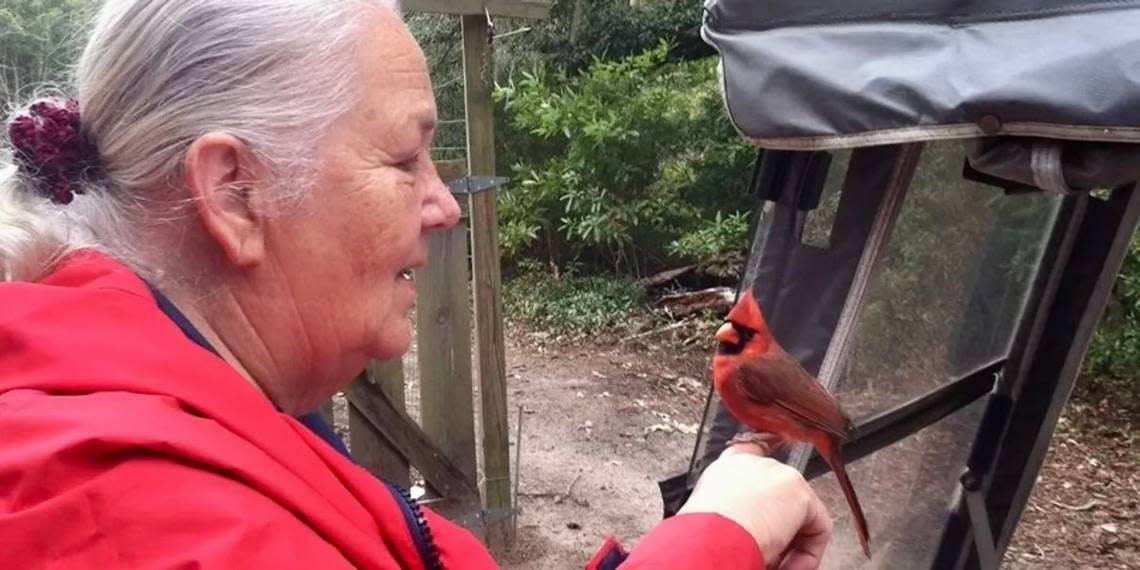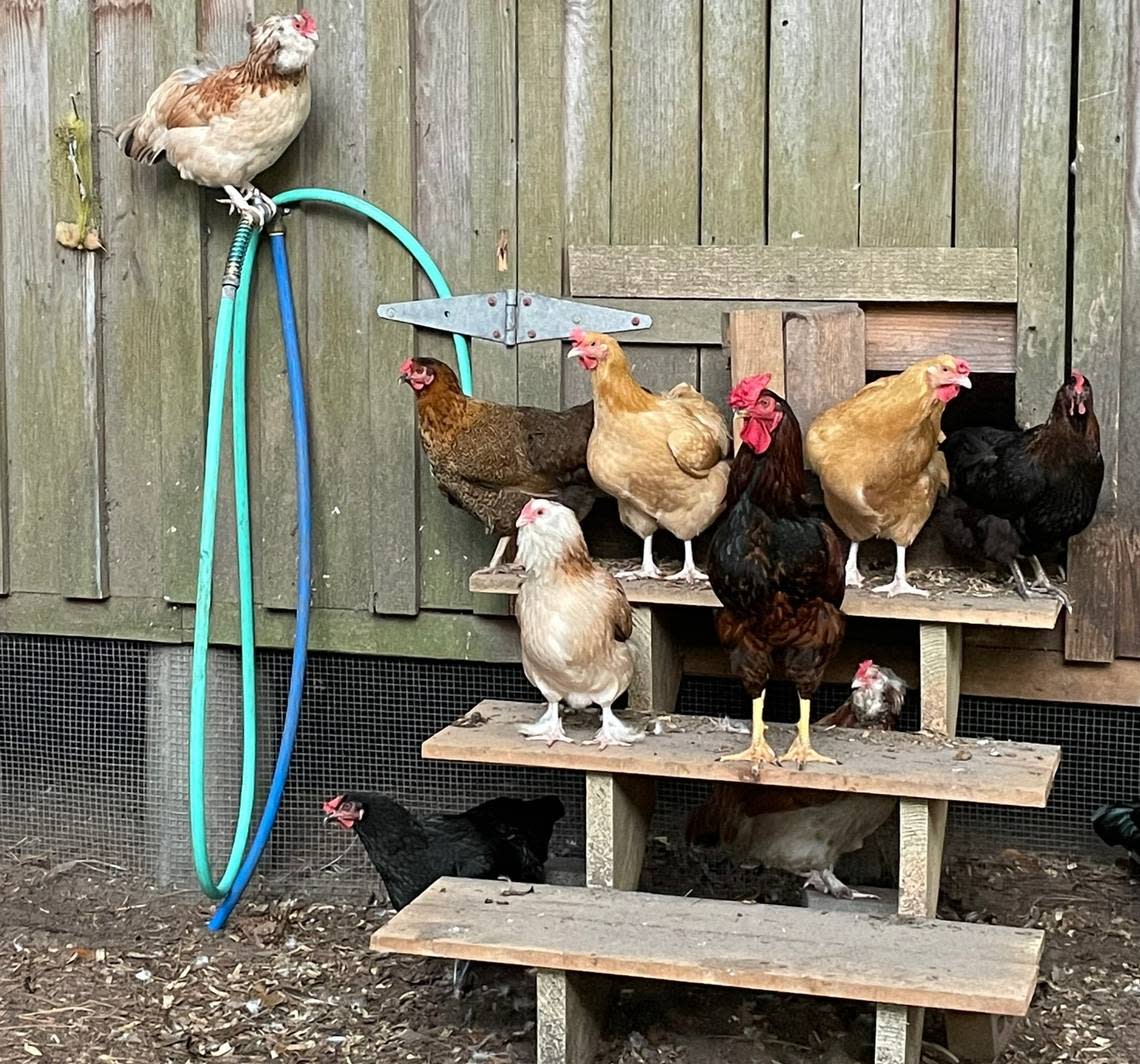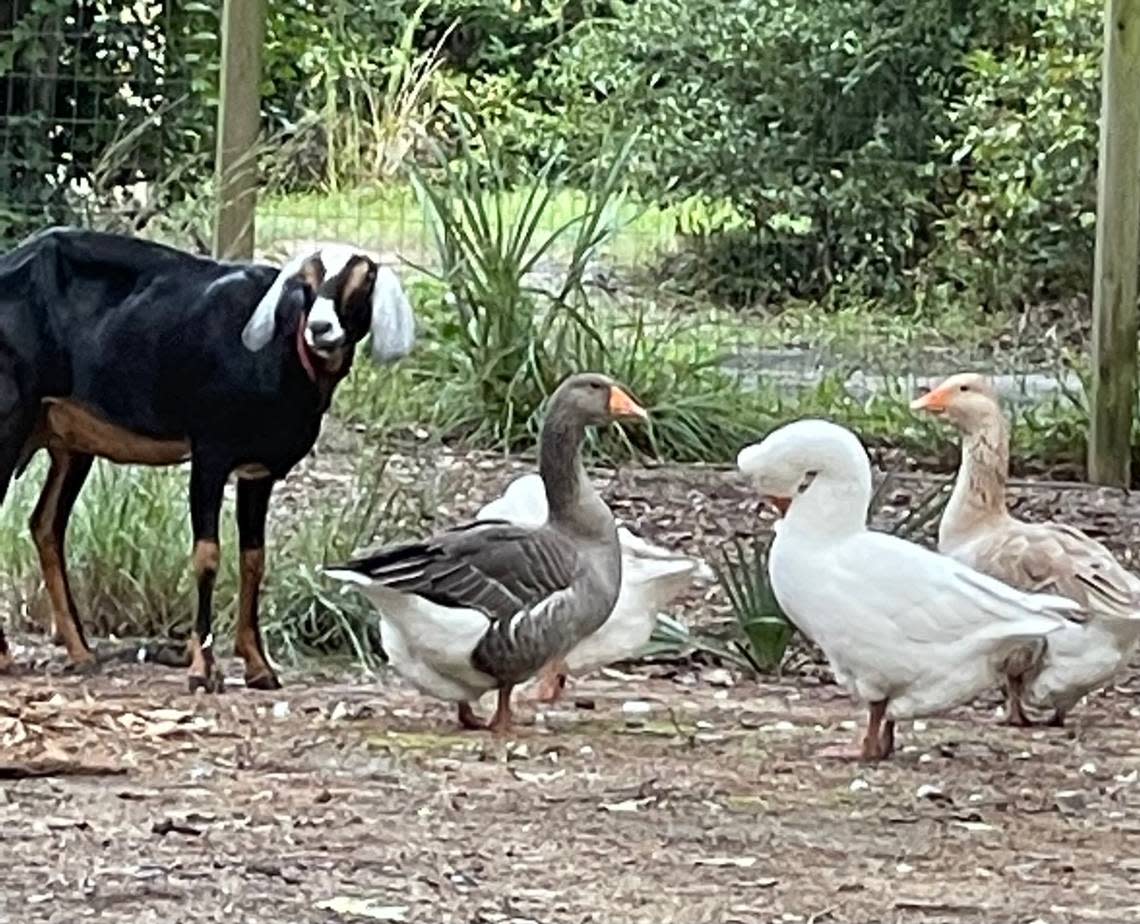‘We were crying all day’: Avian flu outbreak on Daufuskie wipes out community farm’s flock
When a dead vulture was found at the Daufuskie Community Farm in late August, workers didn’t think much of it.
But as time went on, more of the scavenger birds, that often like to roost on a nearby telephone tower, had died. Then, some of the farm’s chickens were found dead.
By Oct. 10, of the farm’s birds, eight chickens and two guinea fowl had died. It quickly became clear to farm workers that something seriously wrong.
After testing some of the dead birds at Clemson’s Veterinary Diagnostic Center in Columbia, farm workers had their answer: A Eurasian strain of Highly Pathogenic Avian Influenza was to blame.
Not too many months ago, back in January, a duck in Chesterfield County turned up dead from the same strain of HPAI. But this is the first case in a flock of domesticated birds in South Carolina since 2020 being affected, a Clemson University news release said.
The specific flu strain can spread from bird to bird through infected respiratory secretions and feces, said Dr. Michael Neault, South Carolina State Veterinarian and director of Clemson University’s Livestock Poultry Health. Symptoms in birds include sudden death, a decrease in appetite and egg production, low energy and swelling.
Pat Beichler, the farm’s general manager, knows firsthand of HPAI’s deadliness.
“They say it’s a 90% mortality rate once it gets into your flock,” Beichler said. “It’s 100% once the government shows up.”
Shortly after it was confirmed that the farm’s birds were dying from HPAI, on Nov. 5, all the farm’s 170 birds were euthanized by officials from the U.S. Department of Agriculture and Clemson. The birds were mostly chickens with some ducks, geese and guinea fowl mixed in.
“We were crying all day,” Beichler said. “It just hasn’t stopped. They come in and they look out at the empty houses and they start crying all over again,” she said of the staff.
For Beichler, a longtime volunteer at the farm, losing the birds was heart-wrenching. She’d raised most of them in her bathroom until they were old enough to go outside.
“They were my babies,” she said.

Financial fallout
Beyond the emotional toll of losing the birds, the loss has spurred financial trouble on the farm.
The nonprofit farm is run entirely by volunteers and makes money from farm tours and memberships where goods like eggs and goats milk from the animals are split between the members.
Up until last year, the farm had a savvy deal with the previous owner of the land. Rent was a dollar each year. When the owner sold the land, the farm managed to buy it but lost the $1-a-year price tag.
Since purchasing the land, the farm’s board of directors brainstormed ideas of how to grow the farm and keep it sustainable, but with the birds gone and the farm under quarantine for 120 days, a massive wrench was thrown in the farm’s financial plans.

“There’s never a good time for a diagnosis of bird flu, ‘‘ said Pastor Aaron Crosby, a member of the farm’s board. “But there are certainly worse times and this was one of the worst times we could imagine for this to happen.”
To make ends meet, the board said it may start a GoFundMe or another similar campaign to help raise money to keep the farm up and running.
Limiting the spread
While the virus is not considered a food safety threat, officials remain cautious and restrict infected birds from entering the food supply, the news release said. As a precautionary measure, Daufuskie Community Farm workers discarded all eggs and milk from their goats that would have been turned into goat cheese.
“We couldn’t put the rest of the community at risk because of negligence or desire to look the other way,” Crosby said.
Because of Daufuskie’s remote nature, officials are confident the disease was transmitted by wild birds, meaning the farm birds most likely contracted the virus from the dead vultures. And, according to Neault, the state vet, containing the spread of the virus was made easier due to Daufuskie’s isolation.
“This is a natural occurring disease in some wild birds. These wild birds that are carrying the HPAI virus are located all over the state and throughout the U.S.,” Neault said. “The best method for preventing other poultry flocks from getting infected is separation from domestication poultry and those wild birds.”
The vultures that roost on the telephone tower were not euthanized.

